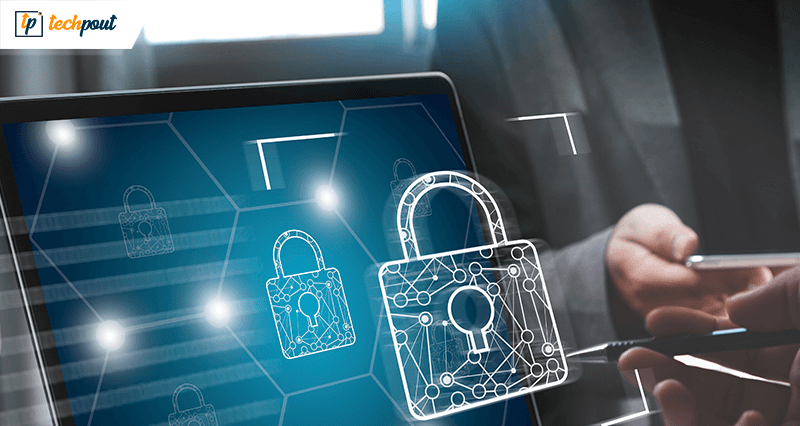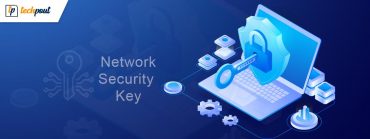Ways To Protect Yourself Against Cybercrime

What is Cybercrime?
Cybercrime can be broken down into two terms: cyber and crime, which means that it is illegal activity or unlawful act (aka crime) that takes place online or in the internet world (i.e. cyber). Cybercriminals (hackers or attackers) often commit these crimes by targeting computer devices or networks.
The effects of cybercrime are far too profound and engraving than just financial loss and data theft. It can also lead to sexual and mental abuse.
Types of Cybercrime
Phishing
Attackers fish for details by sending out malicious e-mails, URLs, or attachments.
Ransomware/Malware
In this, an attacker either hacks your network or data with a virus and asks for a ransom to release your data.
Identity Theft
This is when hackers use personal (social security number) or bank details of a person for wicked purposes.
Scams/Internet fraud
Do I even need to explain this? It’s what everyone warns you about.
Online sexual abuse and Grooming
One of the worst effects of cybercrime, it mostly happens with children. Revenge porn, child porn, and other such spiteful things are a part of cybercrime space.
This is not the whole entirety of the range of cybercrimes, but these are surely the most relevant and common today. There are various other forms and examples of cybercrimes that can be found all over the world.
How do I save myself from Cybercrimes?
Don’t worry guys. Cybercrime is a strong force to fight, but it’s not impossible.
We have listed many ways through which you can save yourself from these threats.
Create strong passwords
This goes without saying that to be secure and safe, you need to have some really strong passwords (No anniversary dates or your favorite teacher’s name).
The password should be a mixture of different letters, numbers, and symbols. Something very complex and ambiguous would be a perfect password.
Also, one should always keep changing their passwords every 90 days, and not have the same password for every single account (I know that you have done this). Having one single key for all locks would make your data very vulnerable.
Don’t store your card details on websites
I know, I know. Those 90 seconds that you save by saving your card details while shopping online are so precious. More precious than losing all your finances from your card, right?
Your bank account details are easily hackable if they exist on a third party website. It is like child’s play for attackers to get these details. So beware, and start manually typing your card specifics every time you shop online.
Use an Antivirus software
This should be done without being mentioned. Antivirus software is as crucial to your OS as breathing is to you.
It’s mostly through a virus that hackers attack your system, and antivirus protects us from such malware attacks.
If you don’t have antivirus software, please get one soon.
Limiting Social media sharing
These past few years have seen an immense rise in cyber theft and cyberbullying cases. At the same time, there’s been an escalation in social media usage. Coincidence? I don’t think so.
These two instances mark an evident relationship between them. It is very easy to post our personal and private life on social handles; it’s much easier to hack these individual posts.
You think that you are just telling your followers about your pet or your mother’s place of birth (very specific, I know), but in reality, you are saying those hackers the answers to fundamental security questions.
Update software and backup data
Always clicking on “not now,” whenever your software asks for an update? Still thinking that you’ll do it some other day?’
Well, let me clear the air for you. That someday is right now and today. Constant updates would safeguard your software, your data as well as increase the security levels in your system.
And why, pray do tell, do people not backup their data? Why do we have to wait for rainy days? It is a good habit, follow it.
Backing up your data helps you, especially during ransomware attacks.
Make your kids aware about cybercrime
It’s a known fact that the internet sometimes is a dark place for kids. It uses their innocence as a tool for bullying, harassment, and cheating. Children are also the ones who suffer from cyber sexual abuse the most.
So it’s a necessity to aware, inform, and communicate with kids about the dark web and teach them social media posting ethics.
Multiple e-mail accounts
Your main email-address is a treasure trove of bank accounts, shopping sites, passport details, and whatnot.
Once hacked, you can’t even imagine the levels of monetary and privacy invasion you’ll have to go through.
So as to protect yourself from it, it’s better to have different e-mail accounts for different purposes. I know (believe me, I do) that it’ll be a hassle to juggle multiple e-mail accounts at once, but it would fade away in a few days. Better safe than sorry!
Use a VPN (Virtual Private Network)
Nowadays, if a place doesn’t have WiFi, we don’t even think about going there. That’s how much we are dependent on this network.
And so are the hackers. They use these open WiFi networks to invade your files and then steal your data.
This is where a VPN would help you. VPN or Virtual Private Network is a service that encrypts or encodes all of your transmitting data. That means if an attacker tries to hack your network, she/he will get only the encrypted data (which is useless to them).
So invest in a good VPN, for your home as well as work network.
And here we have it! These are the ways through which you can beware yourself from a cyber-attack. We hope that these solutions of cybercrime would be of immense help to you.


